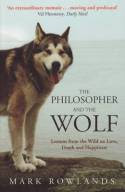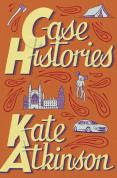 "It's Whit Sunday, you know" my mother said, pausing to look at me meaningfully over the top of her glasses before dropping her eyes to examine the black leatherette menu once more. Quite why she bothers to read the menu is unclear; it never changes and she always orders the same thing anyway. Quite why she also bothered to remind me it was Whit Sunday I'm not sure either. It's a long time since I went to Sunday School.
"It's Whit Sunday, you know" my mother said, pausing to look at me meaningfully over the top of her glasses before dropping her eyes to examine the black leatherette menu once more. Quite why she bothers to read the menu is unclear; it never changes and she always orders the same thing anyway. Quite why she also bothered to remind me it was Whit Sunday I'm not sure either. It's a long time since I went to Sunday School.We were sitting opposite each other in Bill's Neptune Cafe in the High Street. It's a Sunday lunchtime ritual we've fallen into some time over the last year or so, meeting up after she's been to church to chat and enjoy some food served on white oval plates at tables covered with colourful checked plastic cloths. The chairs are spindly with red rubber stoppers on the end of each thin metal leg, their backs and seats upholstered in beige vinyl. A huge old brass gas lamp, with white gauze mantle just waiting to be lit, hangs from the ceiling among the fluorescent lights. The walls are decorated in cream wallpaper with small pink diamonds, the outline of the woodwork of door and window frames fuzzy and blurred by archaeological layers of raspberry gloss paint. Each table is laid with laminated place mats showing photocopied scenes of the Island in days gone by. If one of the smartly dressed Sunday-suited families pictured eternally strolling along the promenade taking the sea air were to step out of their photograph and walk into Bill's, they'd feel right at home.
The Neptune Cafe is one of a tiny handful of traditional seaside cafes that's left in the country. No fancy cappuccino machine here, no rotisserie chicken hopelessly circling, no pre-packed Italian biscuits, no triangular ready-to-go sandwich packs, no bucket-sized paper cups, no artfully mis-matched sofa groupings, no pot pourri'd bathroom with tinny piped music, no over-heated prices. Just a small, narrow time-travelling cafe serving home made dinners and puddings with custard.
Tracey brings us our mugs of tea (one with one sugar, one without) and asks my mother if she'd like her usual. Of course she does, with chips too please, she adds just in case Tracey might have forgotten this essential ingredient. She tucks the small notebook into the pocket of her navy blue tabbard and retreats to the kitchen, weaving through checked tartan shopping trolleys as she passes tables full of pensioners.
Reassured that our food's on its way (cheese and mushroom omlette with salad for me, roast lamb and vegetables - with chips - for mum) we fall into our habitual exchange of news. B's worried about her son because he can't find a job; she gave L a lift to church this morning; K took the sermon - you know, that wonderful reading about the dry bones; she's been clearing out the garage; C took away that old water tank and some rubbish; will the old pots of paint and motor car oil still be ok to use; do I still want to go up to Ikea for her birthday; Roo was on the phone last night chatting about her exams. And then our food arrives and we stop talking for a while.
When we're done, Tracey takes our empty plates and our pudding orders and brings us two more piping hot mugs of strong tea. Our bowls, when they arrive, are brimming with bright yellow custard. Eventually, our spoons rest in the bottom of the empty white dishes and we drain the last of our tea. I go to the counter to pay Tracey, tell her we'll see her next week, and step out into the dazzling breezy bright sunlight of a seaside Whit Sunday afternoon.
Whitsun (or Pentecost) is celebrated seven weeks - or 49 days - after Easter Sunday. It's also related to the Jewish festival of Shavuot, which commemorates the giving of the ten commandments at Mount Sinai. But it's not just a religious celebration. According to Le Morte d'Arthur by Thomas Malory, legend has it that King Arthur always gathered all of his knights at the Round Table for a feast on this day.
I think that the old King could have done worse than to have brought his men to the Neptune Cafe.
























